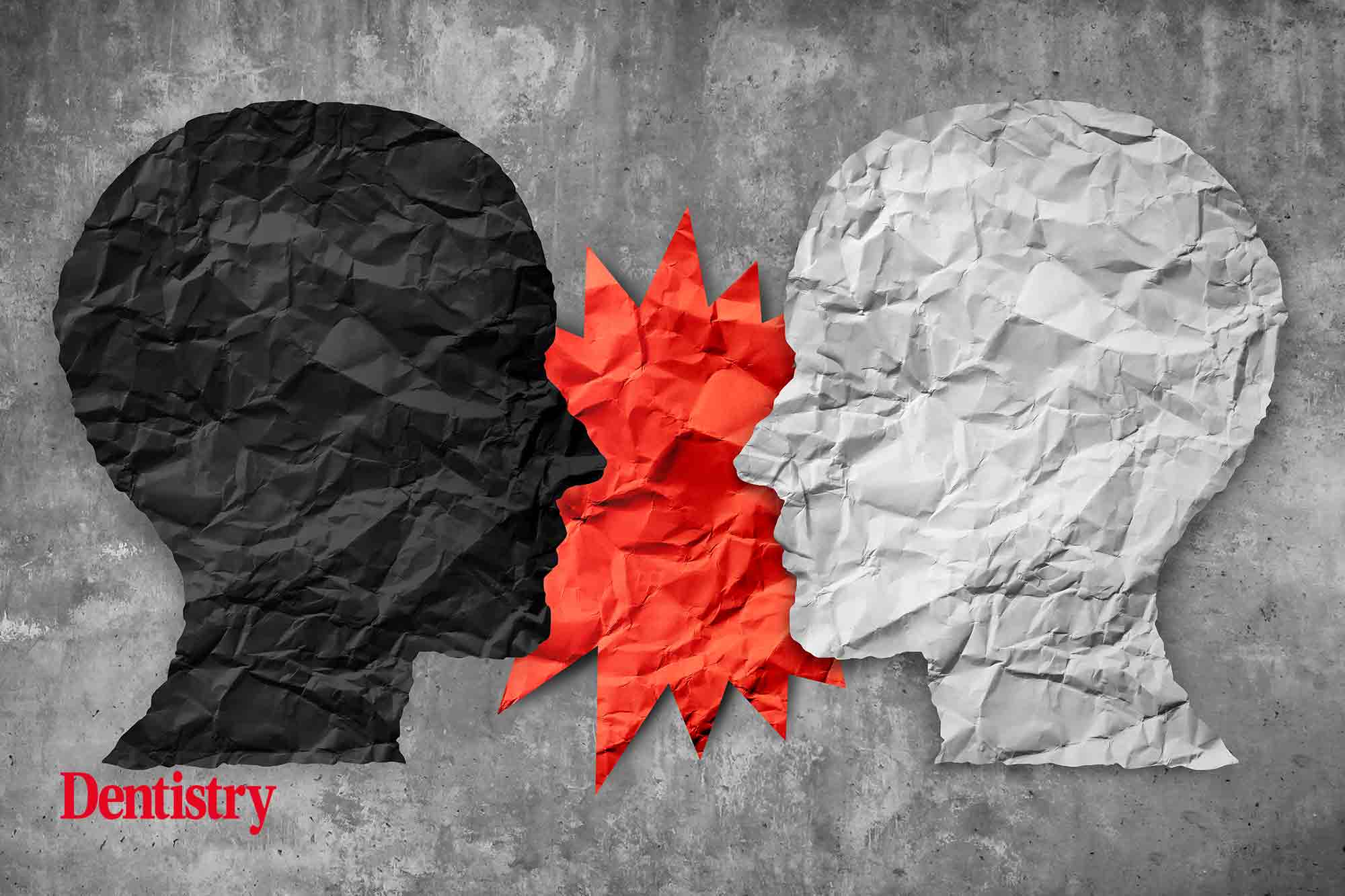 A new report into racism in dentistry has warned of the ‘undeniable moral case for change’ within the profession.
A new report into racism in dentistry has warned of the ‘undeniable moral case for change’ within the profession.
The report, Equality, Diversity and Inclusion within Dentistry, highlights the lack of racial diversity among dental professionals.
According to the report, just 1.7% of dentists and 2.2% of dental care professionals (DCPs) identify as black. By comparison, 51% of dentists and 75% of DCPs identify as white.
The lack of representation continues into academic positions, where just 1.2% identify as Chinese and 0.9% as black. At professor level, 91% of staff identify as white, and 78% as male.
Inequalities impact on the provision of care too, the report warns. Patients from ‘an ethnic background’ are more likely to have tooth decay or other unmet treatment needs. They are also more likely to report difficulties in accessing NHS dental care.
The report is published by the Diversity in Dentistry Action Group (DDAG), a stakeholder group of more than 30 dental organisations.
The figures it quotes come from a mix of previously published evidence and also a DDAG event held in late 2020.
At this event, 90% of participants felt that institutional racism was a primary factor preventing individuals progressing their dental careers in their organisation.
Stifling potential
Introducing the report, Nishma Sharma, chair of the DDAG argued that racism in dentistry must come to an end.
She says: ‘The issue of racism, prejudice, bias is an outdated, stagnant corroded bolus, stuck and wedged into the throat of society; choking progression, suffocating innovation, stifling the potential of a fresh representative workforce where there are no glass ceilings. This can no longer be ignored.
‘Its deep roots are steeped in history, entrenched in the many conflicts and injustices endured over the years.
‘It is now time to break down the barriers using the armoury of education, understanding, empathy, proactive reaction, energy, insight and allyship.’
Despite highlighting the profession’s lack of diversity, the report strikes a constructive tone over racism in dentistry. Much of its 30 pages are dedicated to identifying positive action, and the report calls for a ‘commitment to change’.
It highlights key principles for change that member groups – which include the General Dental Council and British Dental Association – have signed up to.
Each member organisation will be expected to take responsibility for its own changes in accordance with these principles. However, the DDAG has outlined a series of recommendations to support these changes.
These include the development of strategies for positive, sustainable change, and a focus on collaborative working.
The DDAG also calls for ‘zero tolerance’ on issues of discrimination and racism in dentistry.
Racism in dentistry
The DDAG was set up in light of the Black Lives Matter movement sparked by the murder of George Floyd.
But while its first report focuses on racism in dentistry, the body is committed to challenging imbalance in other areas. It aims to ‘co-create a systematic approach for practical action’ in tackling discrimination and also inequality.
It plans to address wider protected characteristics and discrimination issues – including gender and sexual orientation – as time goes on.
The Equality, Diversity and Inclusion within Dentistry report highlights the DDAG’s priorities as voted for by its stakeholders. These are to:
- Create a diverse, inclusive and representative workforce with equal opportunities
- Create diverse, inclusive and representative educational environments
- Ensure equitable access to dental care.
Speaking to Dentistry, Dr Sharma also added: ‘We’re at a point where dentistry is not “not racist”. Dentistry is a reflection of wider society, after all.
‘The purpose of this report is to show that the time for this is over. We want dentistry to be exemplary in leading change. We should be proud to step forward with a mentality of equality, equity and fairness.’
Fault lines
Sara Hurley, chief dental officer (CDO) for England, also tackled racism in dentistry in her own foreword to the report.
She said: ‘The fault lines that traverse society are equally evident in our profession.
‘The uncomfortable home truth is that whilst we may have diversity in dentistry, there is not true equality. As a profession, we are not as inclusive as we may wish to believe.’
She continued: ‘This report has reemphasised that there is an undeniable moral case for change. The diversity of ideas, perspective and ways of working afforded by people of different backgrounds and identities will benefit our patients, as much as our profession and the ripples will have an impact on society.’
The full report is available at www.fgdp.org.uk/equality-diversity-and-inclusion.


